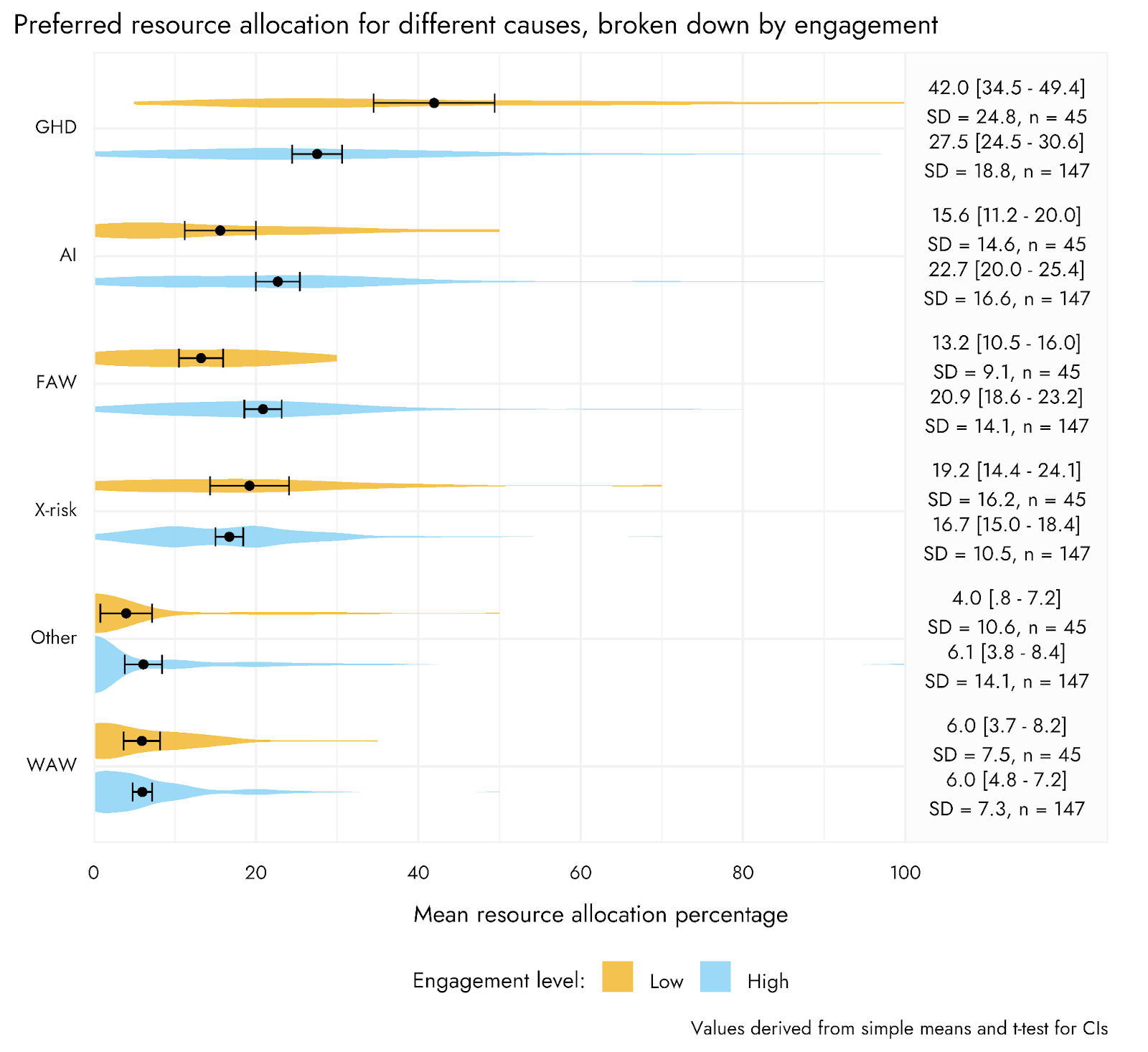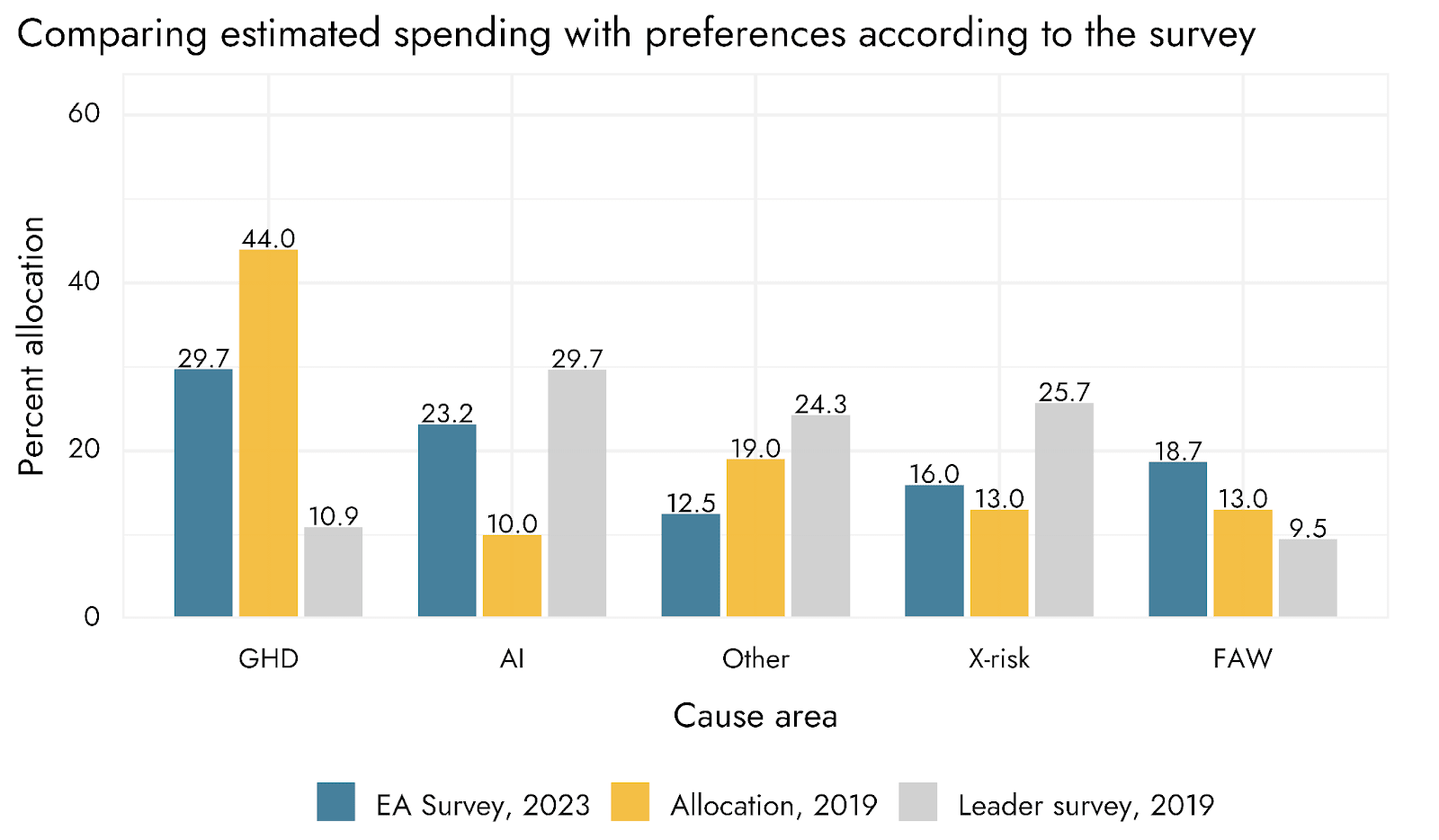When you comment on your vote on the debate week banner, your comment will appear on this thread. Use this thread to respond to other people's arguments, and discuss the debate topic.
You should also feel free to leave top-level[1] comments here even if you haven't voted. As a reminder, the statement is "It would be better to spend an extra $100m on animal welfare than on global health".
If you’re browsing this thread- consider sorting by “New” and interacting with posts that haven’t been voted or commented on yet. There are a lot of comments!
Also- perhaps don’t vote karma below zero for low effort submissions, we don’t want to discourage low effort takes on the banner.
- ^
The first comment in a thread is a top-level comment.



In the interests of furthering the debate, I'll quickly offer several additional arguments that I think can favour global health over animal welfare.
Simulation Argument
The Simulation Argument says that it is very likely we are living in an ancestor simulation rather than base reality. Given that it is likely human ancestors that the simulators are interested in fully simulating, other non-human animals are likely to not be simulated to the same degree of granularity and may not be sentient.
Pinpricks vs. Torture
This is a trolley problem scenario. It's also been discussed by Eliezer Yudkowsky as the Speck of Dust in 3^^^3 People's Eyes vs. One Human Being Tortured For 50 Years case. It's also been analogously made in the famous short story The Ones Who Walk Away From Omelas by Ursula LeGuin. The basic idea is to question whether scope sensitivity is justified.
I'll note that a way to avoid this is to adopt Maximin rather than Expected Value as the decision function, as was suggested by John Rawls in A Theory of Justice.
Incommensurability
In moral philosophy there's a concept called incommensurability, that some things are simply not comparable. Some might argue that human and animal experiences are incommensurable, that we cannot know what it is like to be bat, for instance.
Balance of Categorical Responsibilities
There is in philosophies like Confucianism, notions like Filial Piety that support a kind of hierarchy of moral circles, such that family strictly dominates the state and so on. In the extreme, this leads to a kind of ethical egoism that I don't think any altruist would subscribe to, but which seems a common way of thinking among laypeople and conservatives in particular. I don't suggest this option but I mention it as an extreme case.
Utilitarianism in contrast tends to take the opposite extreme of equalizing moral circles to the point of complete impartiality towards every individual, the greatest good for the greatest number. This creates a kind of demandingness that would require us to sacrifice pretty much everything in service of this, our lives devoted entirely to something like shrimp welfare.
Rather than taking either extreme, it's possible to balance things according to the idea that we have separate, categorical responsibilities to ourselves, to our family, to our nation, to our species, and to everyone else, and to put resources into each category so that none of our responsibilities are neglected in favour of others, a kind of meta or group impartiality rather than individual impartiality.
Thanks for the comment!
I've always heard "pinpricks vs torture" or the Omelas story interpreted as an example of the overwhelming badness of extreme suffering, rather than against scope sensitivity. I've heard it cited in favor of animal welfare! As one could see from the Dominion documentary, billions of animals live lives of extreme suffering. Omelas could be interpreted to argue that this suffering is even more important than is otherwise assumed.
I think it's hard to say what the simulation argument implies for this debate one way or the other, since th... (read more)